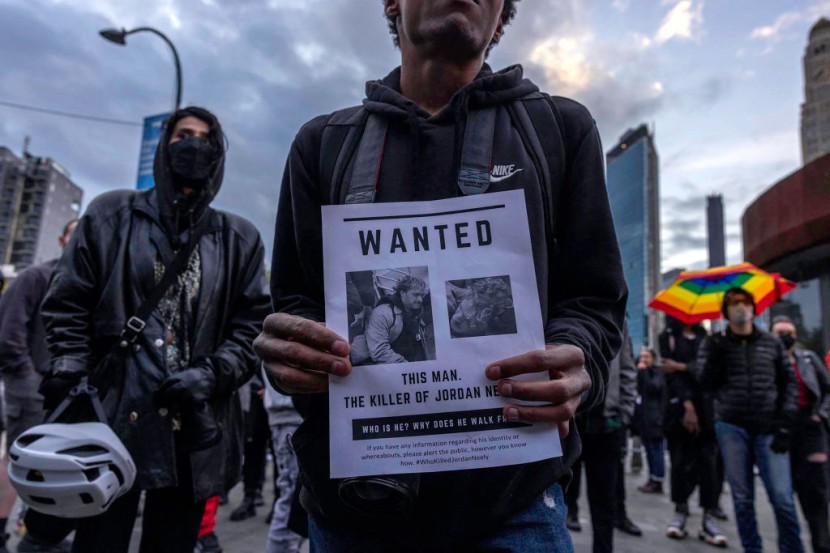
Protestors gather at Barclays Center Arena and march to the 7th police precinct to protest the NYPD's response to the killing of Jordan Neely in Brooklyn, New York, on May 4, 2023.
Even as officials in New York City withheld judgment Thursday, the choking death of a man at the hands of another subway user sparked strong emotions.
The deeply concerned reactions of some mirrored New York decades earlier when citizens felt plagued by crime and tragic vigilantism made national news.
Prosecutors in Manhattan have pledged to conduct a "rigorous" inquiry into the murder of Jordan Neely, a Black man who was placed in a chokehold by a white Marine veteran after being attacked by other passengers.
The medical examiner's office determined on Wednesday night, May 3, that 30-year-old Neely died from homicidal compression to the neck.
In a String of Black Community Attacks
Whatever the case may be, many New Yorkers regarded the choking incident as just the most recent in a long line of assaults on the city's Black community, AP News remarked.
"We're like animals in white people's backyards. They want to get rid of us," said Diango Cici, a 53-year-old resident in Manhattan.
Neely, who made a living impersonating Michael Jackson, died after the early afternoon encounter on a subway beneath Manhattan.
Neely, who was known to have been homeless at times, was yelling at his fellow passengers when one of them put an arm over his neck and pushed him to the floor. Two other passengers also chipped in to help hold Neely down.
According to a military handbook updated in 2020, Marine recruits are frequently taught how to execute and fight against chokeholds, which may knock someone unconscious in as little as eight seconds.
Meanwhile, New York City has prohibited police from employing chokeholds due to their potentially fatal nature.
On its website, the US Department of Justice referred to chokeholds as "inherently dangerous" and stated they had "too often led to tragedy."
Some People Held Back Judgment
No one has been arrested. But the Manhattan DA's office announced late Wednesday that they would be reviewing autopsy reports, looking at any available video and picture evidence, finding and interviewing as many witnesses as possible, and obtaining further medical data.
The 24-year-old man shown on footage putting Neely in a headlock for at least three minutes (and maybe more) was questioned by police but eventually freed without being charged. The police have been tight-lipped about him, but an unnamed law enforcement person disclosed his connection to the Marines.
Mayor Eric Adams said that there were "many layers" to what really happened.
According to AP News, a freelance journalist who rode the train and captured Neely losing consciousness while being held reported that despite Neely's aggressive behavior and jacket toss, he did not physically attack anybody.
Friends and other street performers have characterized Neely as a talented impersonator who became depressed after his mother's death in 2007. News reports at the time said that Christie Neely had been strangled to death.








